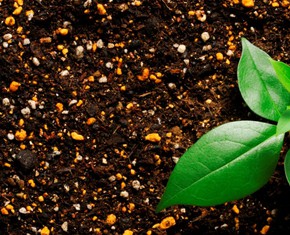The views expressed in our content reflect individual perspectives and do not represent the authoritative views of the Baha'i Faith.
All goes onward and outward, nothing collapses,
And to die is different from what any one supposed, and luckier. – Walt WhitmanThe soul takes nothing with her to the next world but her education and her culture. At the beginning of the journey to the next world, one’s education and culture can either provide the greatest assistance, or else act as the greatest burden, to the person who has just died. – Plato
The day which we fear as our last is but the birthday of eternity. – Seneca
The inability of the materialistic mind to grasp the idea of the Life Eternal is no proof of the non-existence of that life. – Abdu’l-Baha, Paris Talks, p. 94.
I am the living bread which came down from heaven … he that eateth of this bread shall live forever. – Jesus Christ, John 6:51, 58.
What if we really do live forever?
Human beings have contemplated that question since the beginning of time. The question, by definition, has a binary answer: either death ends everything, or our souls go on into an eternal existence:
Death is one of two things. Either it is annihilation, and the dead have no consciousness of anything; or, as we are told, it is really a change: a migration of the soul from one place to another. – Socrates
Which answer appeals to you?
The overwhelming majority of people alive today—somewhere between 80-90%, according to many different global polls—believe in an eternal spiritual existence of some type. Regardless of religion or lack of it, most of us feel we have an everlasting essence: a soul, a spirit, a higher mind. Because we can think, meditate, reflect, and ponder the mysteries of life, most of us tend to believe that something within us will last beyond the lifespan of our bodies.
Despite that prevailing belief, though, we sometimes tend to ignore the care and feeding of our souls:
How strange then it seems that man, notwithstanding his endowment with this ideal power, will descend to a level beneath him and declare himself no greater than that which is manifestly inferior to his real station. God has created such a conscious spirit within him that he is the most wonderful of all contingent beings. In ignoring these virtues he descends to the material plane, considers matter the ruler of existence and denies that which lies beyond. – Abdu’l-Baha, Foundations of World Unity, p. 70.
Instead, we get completely wrapped up in this fleeting plane of existence, going about the daily business of acquiring the necessities of basic survival; and once we get beyond that, we often shift our focus to the allure of the material and the physical:
Is it not astonishing that although man has been created for the knowledge and love of God, for the virtues of the human world, for spirituality, heavenly illumination and life eternal, nevertheless he continues ignorant and negligent of all this? Consider how he seeks knowledge of everything except knowledge of God. For instance, his utmost desire is to penetrate the mysteries of the lowest strata of the earth. Day by day he strives to know what can be found ten metres below the surface, what he can discover within the stone, what he can learn by archaeological research in the dust. He puts forth arduous labors to fathom terrestrial mysteries but is not at all concerned about knowing the mysteries of the Kingdom, traversing the illimitable fields of the eternal world, becoming informed of the divine realities, discovering the secrets of God, attaining the knowledge of God, witnessing the splendors of the Sun of Truth and realizing the glories of everlasting life. He is unmindful and thoughtless of these. How much he is attracted to the mysteries of matter and how completely unaware he is of the mysteries of divinity! Nay, he is utterly negligent and oblivious of the secrets of divinity. How great his ignorance! How conducive to his degradation! It is as if a kind and loving father had provided a library of wonderful books for his son in order that he might be informed of the mysteries of creation; at the same time surrounding him with every means of comfort and enjoyment; but the son amuses himself with pebbles and playthings, neglectful of all his father’s gifts and provision. How ignorant and heedless is man! The Father has willed for him glory eternal and he is content with blindness and deprivation. The Father has built for him a royal palace but he is playing with the dust; prepared for him garments of silk but he prefers to remain unclothed; provided for him delicious foods and fruits while he seeks sustenance in the grasses of the field. – Abdu’l-Baha, Foundations of World Unity, p. 64.
If we truly do live forever—and Baha’is believe strongly that we do—then, as Abdu’l-Baha suggests, shouldn’t we spend some of our time here on Earth preparing for that eternal life?
Let me put it this way: if you knew you were going to move to a completely new country next week, one you knew nothing about and had no experience with, what would you do? You’d probably start out with a little research, just to learn something about the place you were going. You’d familiarize yourself with the climate, the customs and the characteristics of that new country. You’d want to learn something about the language spoken there, and maybe even memorize a few important phrases. When you started to pack, you’d want to know what you needed to get by.
Well, I would submit to you, we’re all moving to a completely new country next week—the country of the soul. Of course, I’m using that one-week timeframe metaphorically—you may have eighty years left here; or you may have just a few hours to make your plans. None of us knows. That uncertainty, common to all people, argues persuasively for starting to make your preparations now.
Every one of us will, sooner or later, make that transition. We’ll leave our bodies behind and graduate, moving to the country of the soul. In the next essay in this series, we’ll see if we can come up with a to-do list for the move.
Next: Making Your To-Do List for Life After Death
You May Also Like
Comments

















There is the apocryphal story of 'Abdu'l-Baha asking Lua Gettsinger to get her hands 'dirty' by tending an old, 'dirty' sick person and in some small way easing his pain and suffering. This is the question that I am asking for us all in terms of preparing our souls for entry in the Abha Realm.
And, yes, this was a fine article. Thank you, David.
I've been "playing in the dust" as
Abdu'l-Baha said. I love John Hatcher's books on this kind of thing!